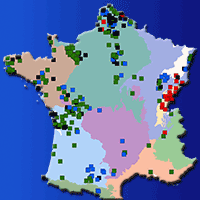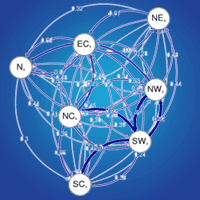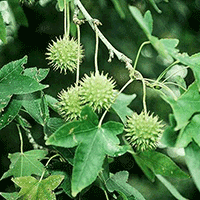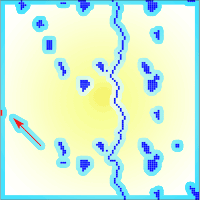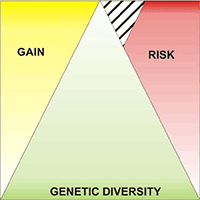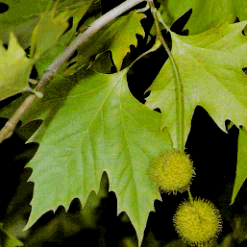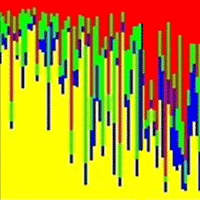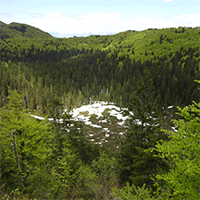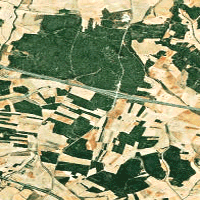
The genetic consequences of habitat fragmentation: the case of forests
iForest - Biogeosciences and Forestry, Volume 2, Issue 3, Pages 75-76 (2009)
doi: https://doi.org/10.3832/ifor0496-002
Published: Jun 10, 2009 - Copyright © 2009 SISEF
Commentaries & Perspectives
Abstract
Habitat fragmentation is one of the most serious threats to plant biodiversity at the within-population level. Growing attention on the genetic effects of habitat fragmentation is reflected in the 2008 publication of several review papers. In general, fragmentation showed a negative effect on the genetic variability of plant populations. However, for forest trees the genetic signal of fragmentation seems less clear. Here I discuss the development of less explored issues that can help to clarify some unresolved questions about tree responses to fragmentation. In particular, the understudied effect of delay in sexual maturity and the need for accurate estimates of gene flow are taken into account. I finally underline the potential role of the Italian peninsula as an open-sky laboratory for forest fragmentation studies.
Keywords
Conservation genetics, Range limits, Genetic diversity, Gene flow
Authors’ Info
Authors’ address
Department of Environmental Sciences, University of Parma, v.le Usberti 11/A, I-43100 Parma (Italy)
Corresponding author
Paper Info
Citation
Piotti A (2009). The genetic consequences of habitat fragmentation: the case of forests. iForest 2: 75-76. - doi: 10.3832/ifor0496-002
Academic Editor
Gabriele Bucci
Paper history
Received: Jan 12, 2009
Accepted: Mar 31, 2009
First online: Jun 10, 2009
Publication Date: Jun 10, 2009
Publication Time: 2.37 months
Copyright Information
© SISEF - The Italian Society of Silviculture and Forest Ecology 2009
Open Access
This article is distributed under the terms of the Creative Commons Attribution-Non Commercial 4.0 International (https://creativecommons.org/licenses/by-nc/4.0/), which permits unrestricted use, distribution, and reproduction in any medium, provided you give appropriate credit to the original author(s) and the source, provide a link to the Creative Commons license, and indicate if changes were made.
Web Metrics
Breakdown by View Type
Article Usage
Total Article Views: 55460
(from publication date up to now)
Breakdown by View Type
HTML Page Views: 44765
Abstract Page Views: 4462
PDF Downloads: 5012
Citation/Reference Downloads: 140
XML Downloads: 1081
Web Metrics
Days since publication: 6090
Overall contacts: 55460
Avg. contacts per week: 63.75
Citation Metrics
Article Citations
Article citations are based on data periodically collected from the Clarivate Web of Science web site
(last update: Mar 2025)
Total number of cites (since 2009): 19
Average cites per year: 1.12
Publication Metrics
by Dimensions ©
Articles citing this article
List of the papers citing this article based on CrossRef Cited-by.

